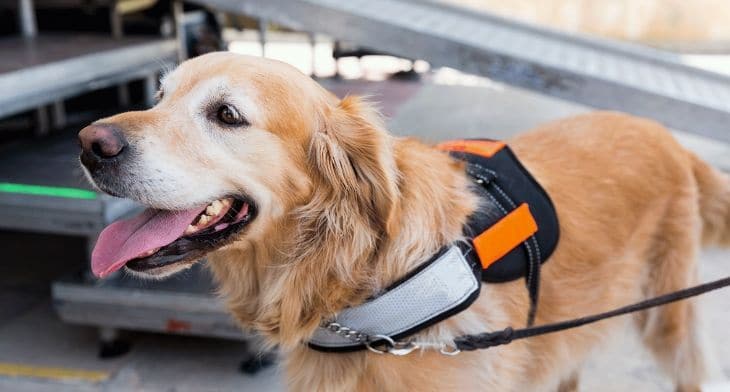
US airlines have begun enforcing a ban on emotional support animals, following a final rule issued in December 2020, by the US Department of Transport (DOT).
The DOT’s final rules bring the definition of a service animal into alignment with the Department of Justice’s definition under the Americans with Disabilities Act (ADA), defining a service animal as a dog that is individually trained to do work or perform tasks for the benefit of a qualified individual with a disability. This does not include emotional support animals (ESAs).
“Airlines are committed to promoting accessibility for passengers with disabilities and ensuring their safe travel. The Department of Transportation’s final rule will protect the traveling public and airline crewmembers from untrained animals in the cabin, as well as improve air travel accessibility for passengers with disabilities that travel with trained service dogs,” stated A4A President and CEO Nicholas E. Calio. “We commend Sec. Chao for her leadership in both aviation safety and passenger accessibility.”
A broad range of stakeholders including consumer, disability, labour and service dog training organisations have advocated for changes to stop this abuse.
As of 11 January 2021, Alaska will only transport service dogs, which are specially trained to perform tasks for the benefit of a qualified individual with a disability.
“This regulatory change is welcome news, as it will help us reduce disturbances onboard, while continuing to accommodate our guests traveling with qualified service animals,” said Ray Prentice, Director of Customer Advocacy at Alaska Airlines.
Under the revised policy, Alaska will accept a maximum of two service dogs per guest in the cabin, to include psychiatric service dogs. Guests will be required to complete a DOT form, which will be available on AlaskaAir.com, attesting that their animal is a legitimate service dog, is trained and vaccinated and will behave appropriately during the journey.
Alaska will continue to accept emotional support animals under its current policy for reservations booked prior to 11 January 2021, for flights on or before 28 February 2021. No emotional support animals will be accepted for travel after 28 February 2021.
Delta’s updated policy includes input and guidance from our frontline teams, as well as recommendations from its Advisory Board on Disability.
“We applaud the DOT for making this change and acknowledging the concerns that Delta and many other stakeholders have raised for the past several years,” said Allison Ausband – S.V.P., In-Flight Service. “The DOT’s final rule enables airlines to put the safety of all employees and customers first, while protecting the rights of customers who need to travel with trained service animals.”
“Delta’s updated policy follows a nearly 85% increase in animal incidents since 2016, including urination, defecation and biting,” said David Garrison – S.V.P. Corporate Safety and Security. “Our top priority is the health, safety and comfort of Delta customers and our people. We strongly believe this policy change will enhance the overall travel experience for everyone.”
Delta will lift its ban on pit bull type dogs that meet documentation requirements for trained service animals.
From 1 February, to ensure accessible travel for individuals with disabilities while protecting the safety and well-being of customers and team members, American will ask customers traveling with service animals to complete a DOT form attesting to the dog’s behaviour, training, and health. The airline will require this form to be submitted electronically 48 hours in advance of a flight unless the reservation is booked within 48 hours of travel. A service animal’s authorisation will be valid for one year or until the expiration of its vaccinations.





